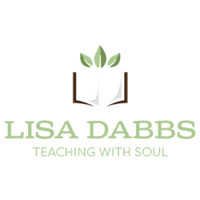New-Teacher Academy 2015 on #ntchat: Lesson Planning
In January of 2012, as a resident blogger at Edutopia, I had the privilege of running a five-part series on my Edutopia blog called the New Teacher Academy. It included key concepts that new and pre-service teachers need to develop in their first years of practice. I asked several talented educators, active in social media, to join me and contribute weekly to this series and it was a huge success!
Now in 2015, I’m going to reprise this series weekly on my blog and on New Teacher Chat #ntchat! Take a read and join me for the next four weeks of collaboration and learning!
________________________________________________________________________________________________________________
Welcome to week two of Edutopia’s New Teacher Academy blog series! I’m excited to be here with you sharing my passion to support and mentor new teachers. I hope that you will stay with us as we continue to look at five key topics designed to provide resources for new teachers in five key areas. To collaborate in more detail on these and other topics, I invite you to join New Teacher chat on Twitter.
Please view this video as I share a few words on lesson planning.
A lesson plan is a teacher’s detailed guide or map. It maps the course of instruction for one class, or maybe many if you teach more than one subject. It’s the “recipe” for the day’s exciting learning!
A daily or weekly lesson plan is developed by a teacher to guide class instruction. Details will vary depending on the preference of the teacher and the subject matter being covered. Schools or school districts may have guidelines regarding the lesson plan. They may even have mandates.
That being said, there’s always a way to make your lesson plan uniquely your own. How to prepare the lesson plan will also be important. Some teachers enjoy using a good sturdy lesson plan book, some a Word document or spreadsheet, or still others a shared Google Doc. Whichever way you choose, the need for a lesson plan is vital. It can be even more challenging to write and prepare a lesson plan when you’re a new teacher!
Today’s guest contributor is Matt Ray, a fourth-year teacher in New York City with general education and special education experience. He is passionate about his craft and is eager to share, collaborate and offer support to new teachers.
Matt is a fourth-year teacher in New York City with experience teaching general education and special education. He is an active blogger and user of Twitter (@MrMatthewRay). One of Matt’s guiding educational philosophies is his belief in the abilities and value of all children.
Lesson Planning with Matt Ray
Without a detailed plan, you may — if you’re lucky — deliver a lesson that turns out to be pretty good. More often, though, a poorly planned lesson is going to be a clunker. Our students suffer when we fail to appropriately plan for them.
Planning a lesson is not as simple as referring to a curriculum map, the next page in the textbook or standards. These resources all have their place, and you should use them — but as guides, not the law. You will find they often don’t account for students’ deficiencies. You have to account for them, or else your teaching becomes meaningless.
Lessons don’t occur in a vacuum. What you see, hear and read from your students today should be directly reflected in what you teach tomorrow. Let the students dictate where you go with your planning. If you are too married to what “needs” to get done, students will fall behind quickly, quite frankly because they don’t get what they need.
“Data” is a four-letter word that strikes fear in many teachers. It shouldn’t. You collect data everyday when you observe your students and take note of what they are doing well and where they need support. Data comes from conversations (between or with students), exit slips, quizzes, questions, journals and more. Use it to figure out what your students still need to learn, and therefore, what you need to teach.
Some people like to plan a whole week at a time. I’ve even heard of people who plan all their lessons over the summer. I question these practices. Planning should be reactive. I generally plan only one or two days in advance. That way I make sure I’m not getting too far ahead of my students.
A lesson plan does not need to be scripted to the letter. However, it should have certain components to facilitate delivery. (These are my suggestions. Your school or district may require a certain format.)
1) Objective
Your objective is what you want the outcome of the lesson to be. You might write, “At the end of the lesson, students will be able to _____.”
2) Materials
Your materials are the list of resources, articles or manipulatives you need. This helps you organize everything prior to the lesson.
3) Procedure
The bulk of the lesson, procedure includes, among other items: your activation or assessment of prior knowledge; teaching and learning activities; and questions to guide student thought.
4) Assessment
How do you know they “got it?” You can use various forms of data to see. Remember, though, assessment happens throughout the lesson (so you can see what your next steps might be within the lesson) and at the end (so you can see if the objectives were met).
Lesson planning is pivotal to positively impacting student achievement. My rule for planning: always let your students be your guide!
More Useful Links for Lesson Planning
As you look at ways to keep your Lesson Plans vibrant and engaging, here are a few additional links that you may want to check out.
- New Teacher 1st Year YouTube channel
- Lesson Plans: Read, Write, Think
- Lesson Plans: Discovery Education
- Lesson Plans: HotChalk
- Free Lesson Plans: Scholastic
- Strategies for Effective Lesson Planning: Center for Research on Learning and Teaching, University of Michigan
- Invisible Differentiation — Grouping Without Groups: Matthew Ray’s blog
- Differentiation — Not as Bad as You Think (Trust Me): Matthew Ray’s blog
- What’s Cooking? Differentiation, That’s What!: Matthew Ray’s blog
I’d love to hear about your lesson planning ideas. Tell me about what works for you and what new strategies you’ve found.
Thanks for reading! If you enjoyed this post, please subscribe to TeachingWithSoul and connect with me on Twitter.
 This post originally appeared on Edutopia, a site created by the George Lucas Educational Foundation, dedicated to improving the K-12 learning process by using digital media to document, disseminate, and advocate for innovative, replicable strategies that prepare students. View Original >
This post originally appeared on Edutopia, a site created by the George Lucas Educational Foundation, dedicated to improving the K-12 learning process by using digital media to document, disseminate, and advocate for innovative, replicable strategies that prepare students. View Original >
1 Comment
Submit a Comment
LISA DABBS
Wife. Mom. Educator. Author. She started her career as an elementary school teacher in Southern California. In this role as teacher, she assisted with a grant project and became the Project Director of a Language and Literacy program. Read more
CONNECT WITH ME



Lisa and Matt thanks for sharing and delivering this great site and content. As a pre service teacher in Austalia who has made a career change at 40 from online marketing to teaching I’m absolutely loving the great content and social media that you are driving to help others improve their craft and become better educators.